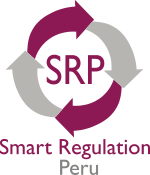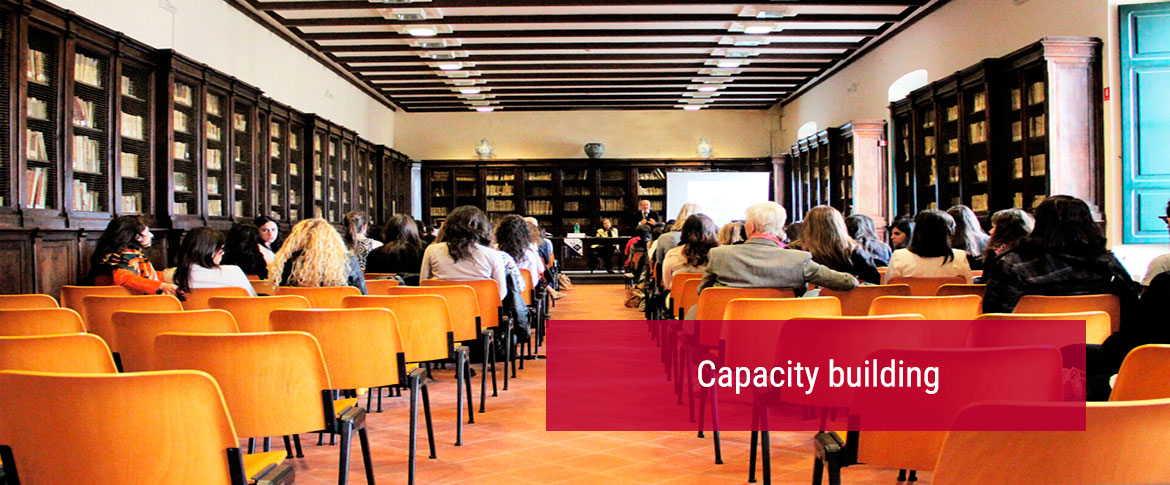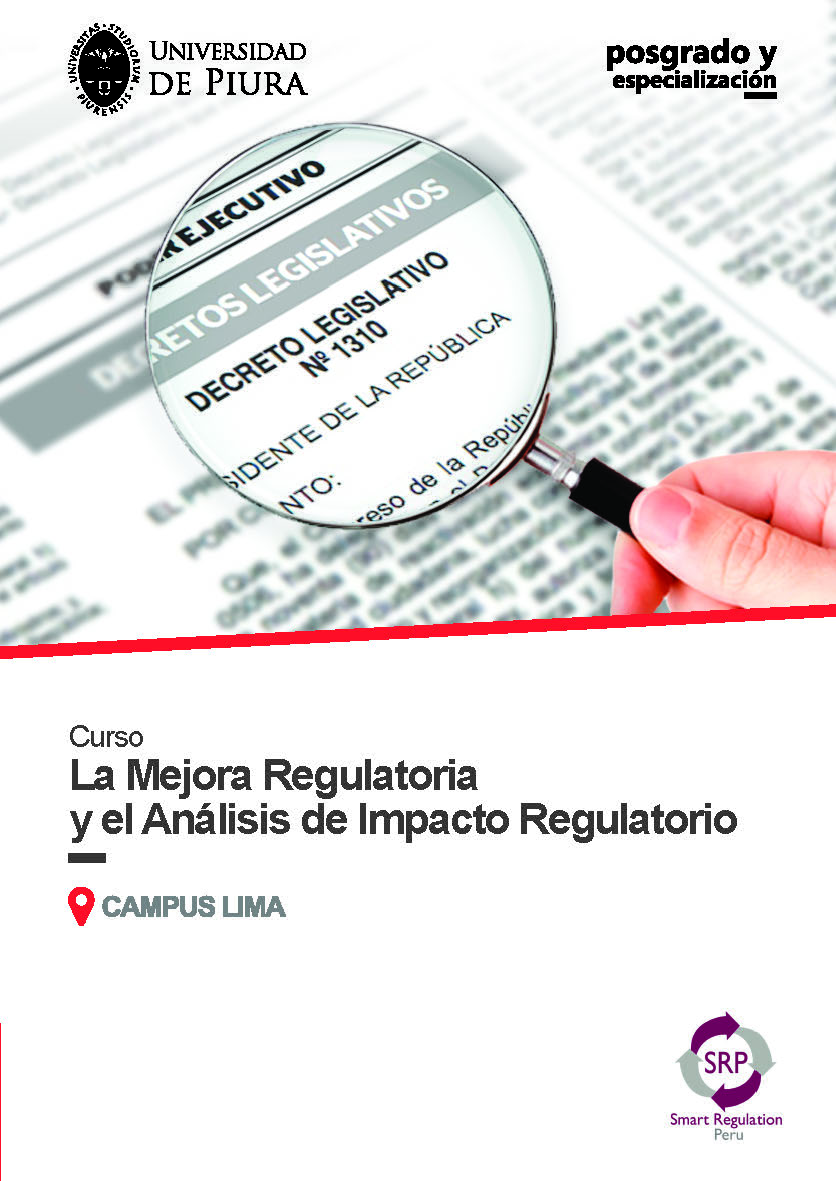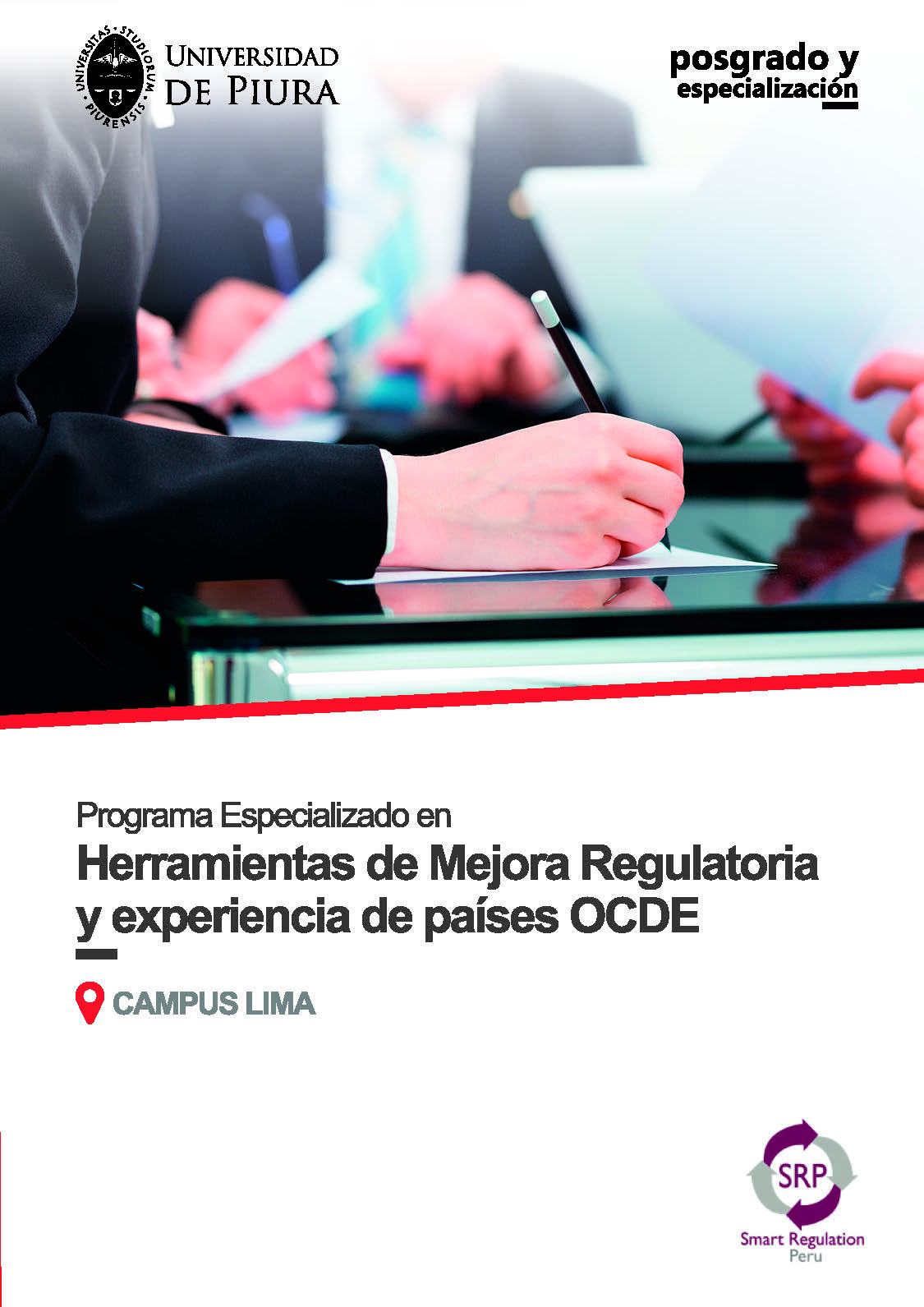We develop programs and workshops to foster conditions for implementation of the reforms necessary to establish a high-quality regulatory culture in Peru.
Better Regulation Programme
Our programs, "Regulatory Improvement and Regulatory Impact Analysis" and "Regulatory Improvement Tools and Experiences of OECD Countries", are intended to enhance the knowledge and technical capacities of those interested in regulatory improvement.
For more information about our programs and instructors, click here.
In – House Training Programme
In addition, SRP offers short workshops designed to meet the needs of the Entity in order to explain the importance and usefulness of regulatory quality tool. The workshops address the following topics:
- Basic principles of the regulation, definition and objectives of the policy and regulatory governance. The regulatory cycle.
- OECD recommendations to Peru and rules on regulatory quality.
- Regulatory Impact Analysis (RIA)
- Review of the regulatory stock.
- Improvements in inspection mechanisms.
- Smart compliance schemes.
- Ex-post regulatory evaluation.
- Public consultation.
Objectives
Some of the main questions that the program seeks to answer are:
- How to ensure that regulations (or regulations) are consistent and effective?
- How to select the most appropriate regulatory tools or non-regulatory alternatives to achieve the desired public policy objective?How to make regulations understandable, flexible and less prescriptive or intrusive?
- How to effectively implement results-based regulatory schemes, corporate governance and risk management?
- How to make regulations reflect the needs of citizens and businesses, as well as empirical evidence, in a transparent way?
- What mechanisms can be used to improve communication with stakeholders (citizens, companies and users)?
- What to do to reduce the number and complexity of regulatory procedures or charges?
- How to prevent unnecessary and unreasonable regulations from being implemented from the outset?
- How can stakeholders achieve voluntary compliance with regulatory requirements?
- How to achieve a high degree of regulatory compliance with minimal enforcement work?
- How can the regulatory impact be measured in an ex ante and ex post manner?
- How to achieve the legitimacy and acceptability of public or regulatory entities by its stakeholders?
- How to design regulatory entities with high standards of regulatory quality?
- What is needed to produce and implement reforms in Peru aimed at establishing a high quality regulatory culture at all three levels of government in order to contribute effectively and sustainably to economic development?



